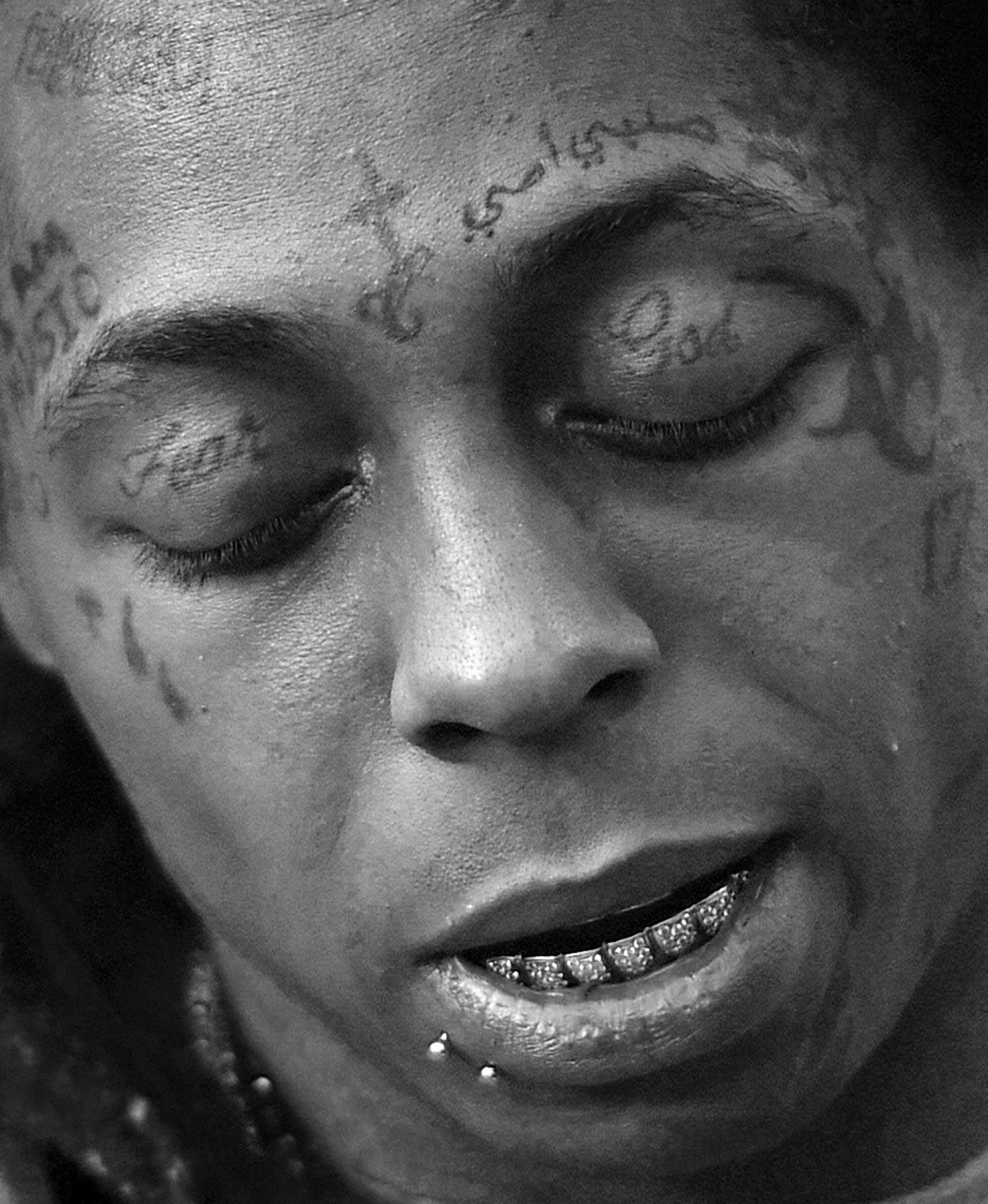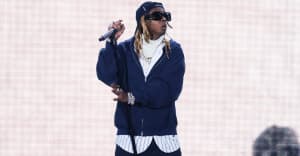 Ethan Miller/Getty
Ethan Miller/Getty
Between the years 2006 and 2009, do you remember anyone who didn’t like Lil Wayne?
The question is pretty ridiculous in nature, but seriously, think about it. Maybe you had a friend who was a hip-hop snob and stuck to underground shit, like Sean Price or Madvillain. Or maybe your country-blaring neighbor, still bitter at rap’s dominance on the charts and in pop culture, chose to ignore him. And yeah, that verse on the remix of T-Pain’s “Can’t Believe It,” which sounded like it was gargled out of a throat full of mouthwash, probably drew some hate. But damn, how untouchable was Wayne back then?
When I think of that time period, I think of Weezy performing with Kid Rock at the Country Music Awards, playing a guitar that probably wasn’t even plugged in. I think of then-presidential hopeful Barack Obama warning kids on his campaign trail that not everyone can be as God-gifted at rapping as Wayne — that they should focus on more tangible things, like school, instead. And of course, I think back to my friends and I, drunk to the core at parties in college, enthusiastically dissecting the lyrics off Dedication 2 and Da Drought 3. In my lifetime, only one other artist — a pre-Get Rich or Die Tryin’ 50 Cent — had such a massive hype leading up to an album drop. When Wayne finally released Tha Carter III, it was a mammoth event: The repeating vocal sample of “Let The Beat Build” was seemingly coming out of every dorm window, while the cheesy intro on “Lollipop,” the album’s first single about letting “her lick the rapper,” was awkwardly stuck on the tip of everyone’s tongues. We loved to say he wasn’t from this planet. This was partly because of his skill, which made other rappers seem mere mortal in comparison, but also because dude was a straight-up weird, giggling like a Muppet character on songs and rapping in a croak that’d eventually be intimated by a slew of generic wannabes. We fully believed it when he declared himself a Martian on “Phone Home” off TCIII. He seemed invincible.
I like to harken back to that era when I think about Wayne today, who’s viewed in a much more human light. I’m not using it as evidence to demonstrate how his star has fallen necessarily; despite the lukewarm responses to his most recent projects, his impact on the genre is undeniable, influencing a notable shift in its sound (Harlem rapper A$AP Rocky once explained it by saying, “Wayne made everybody switch their flow up”), look, and style. Rather, I’m painting a picture of how connected the world felt for a time to a former kid rapper from New Orleans whose first stage name was Shrimp Daddy. “I always said my whole life, ‘I’mma be like Lil Wayne,’” said an 18-year-old Chief Keef back in 2013, when the Chicago phenom was on the brink of stardom. Like Keef, a generation of hip-hop fans saw themselves in Wayne and wanted to emulate him. Looking back, it was probably unfair to put so much relatability in Lil Wayne, the persona, when none of us really knew much about Dwayne Michael Carter Jr, the actual person, a polarizing and very private figure.
His verse on “Mad” is an admission — not only of the suicide attempt, but also that the aura of invincibility that followed him for years wasn’t real.
A contrast to his isolation can be found in Kid Cudi, an artist who cites Wayne as an influence and has deemed him a “legend” in the past. Cudi recently entered rehab after years of struggle with anxiety and depression. Upon putting his music career on hold, he posted on Facebook an emotional and revealing letter to his fans, admitting that he’s suffering from suicidal urges. The letter was met with a flooding of moral support, which ranged from celebrities opening up about how his music saved their lives to fans angrily coming to his aid when a certain Canadian MC questioned the letter’s motive. He completely opened himself to his supporters.
Wayne, meanwhile, has done the opposite; as he’s suffered through multiple health scares over the years, including a string of seizures, he’s given little insight to what their cause is. Following a six-day stint in the hospital in March of 2013, brought on by three seizures in a row, Wayne stated in a vlog that he actually has seizures all the time and that we “just never hear about them.” He added that he now felt “more than good” and, in a radio interview a week later, said his condition was actually a result of not taking his epilepsy medication. Fans reacted warily, wondering out loud if his condition was in fact caused by his infatuation with codeine cough syrup — a prescription drug that’s taken the lives of numerous beloved rappers. Erratic behavior over the years, including him tweeting a vague message earlier this fall that he was “mentally DEFEATED,” has added to the concern that something more serious is at play.
Wayne doesn’t necessarily owe us answers. Privacy, especially when it comes to health matters, should be respected. But combined with his unawareness toward seemingly everything that young rap fans care about, including next-generation upstarts like Lil Uzi Vert, Lil Yachty, and Kodak Black, his unwillingness to speak on his brushes with death have created a divide. Even his peers from the late aughts, when he was unquestionably king, are scratching their heads. “You have to get outta that bubble that you’ve been living in,” rapper T.I., who’s collaborated with Wayne many times, recently said on Instagram in reaction to his Nightline comments surrounding the Black Lives Matter movement.
Still, every once in awhile, Wayne drops his guard and lets us in. His recent book, Gone Till November, which is a memoir of his time at Riker’s Island in 2010, is an example of this, pulling back the curtain at times to show what it was like for a multi-millionaire to have everything stripped from away for eight months. And then there’s his verse on Solange’s “Mad,” a highlight off her recent A Seat At The Table record. It’s perhaps his best in years, both for its technicality — Wayne can still effortlessly glide over a beat when he wants to — and its honesty. The line about his failed suicide attempt of course caught our ears first, coinciding with what we’ve feared. Over the track’s fluttery piano, it comes off especially jarring: “And when I attempted suicide, I didn’t die/I remember how mad I was on that day/Man you gotta let it go before it up in the way/Let it go, let it go,” he rhymes. It’s tempting to take the verse at face value, but it’s also important to remember that it’s an admission — not only of the attempt, but also that the aura of invincibility that followed him for years wasn’t real. The Martian, he’s saying, is actually like the rest of us, flaws and all.
